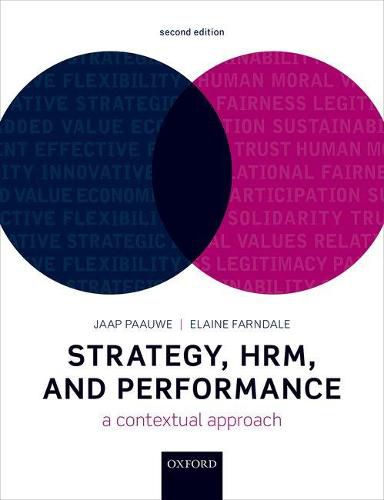Readings Newsletter
Become a Readings Member to make your shopping experience even easier.
Sign in or sign up for free!
You’re not far away from qualifying for FREE standard shipping within Australia
You’ve qualified for FREE standard shipping within Australia
The cart is loading…






The book expounds the macro-level relationship between strategy, HRM, and performance, addressing important challenges that have constrained research and practice to date. Adopting a critical perspective, the first challenge is a narrow definition of ‘performance’ that has been largely driven by a managerialist, profit motive, with little regard for the human element. This book proposes adopting a more balanced approach towards measuring performance, encompassing both organizational financial performance as well as employee well-being. The second challenge is that HRM has largely been considered a universalistic phenomenon, rather than needing to be understood in the context in which an organization is operating. The book puts forward the argument for a more context-centric perspective, culminating in the development of the Contextual Strategic Human Resource Management Framework.The book emphasizes the importance of strategy, alignment, context, the role of actors, and a holistic conceptualisation of performance. Embedded in all chapters is a focus on achieving an appropriate balance between options, rather than providing a universalistic solution to all human resource management challenges.
$9.00 standard shipping within Australia
FREE standard shipping within Australia for orders over $100.00
Express & International shipping calculated at checkout
The book expounds the macro-level relationship between strategy, HRM, and performance, addressing important challenges that have constrained research and practice to date. Adopting a critical perspective, the first challenge is a narrow definition of ‘performance’ that has been largely driven by a managerialist, profit motive, with little regard for the human element. This book proposes adopting a more balanced approach towards measuring performance, encompassing both organizational financial performance as well as employee well-being. The second challenge is that HRM has largely been considered a universalistic phenomenon, rather than needing to be understood in the context in which an organization is operating. The book puts forward the argument for a more context-centric perspective, culminating in the development of the Contextual Strategic Human Resource Management Framework.The book emphasizes the importance of strategy, alignment, context, the role of actors, and a holistic conceptualisation of performance. Embedded in all chapters is a focus on achieving an appropriate balance between options, rather than providing a universalistic solution to all human resource management challenges.